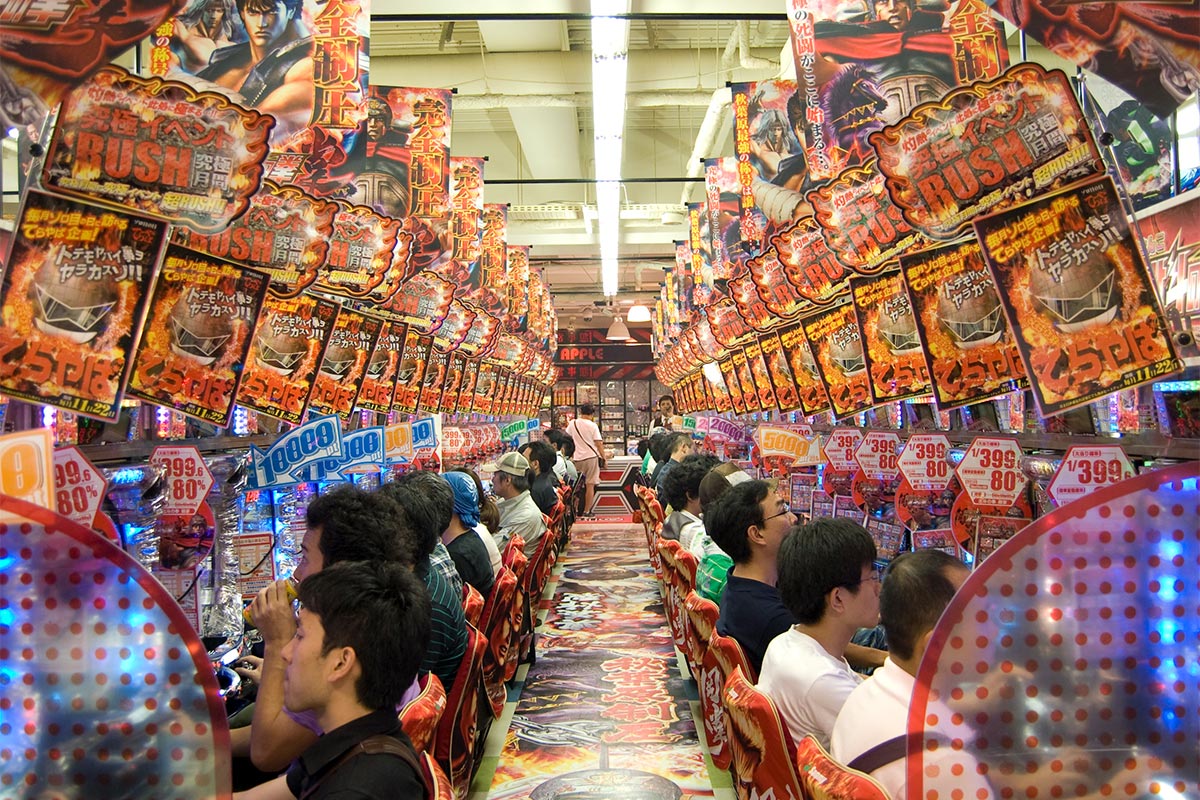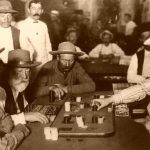Japanese gamblers spend a staggering $200bn per year on pachinko – a game that resembles pinball played on a vertical table. That’s more than 30 times the money spent in Las Vegas. It’s also more than than Japan’s entire car export industry, and more than the GDP of New Zealand!
What is pachinko?
Pachinko is a popular games played in over 10,000 parlours around Japan. Players launch small metal balls into a machine which bounce their way down past several pins, with the aim of landing the balls in one of many ‘catchers’ – small cups in the playing area. A captured ball will trigger a payout. Similar to western pinball machines, the player can control the speed and angle of the balls to try and improve their chances of success. The pins and catchers are carefully positioned and calibrated to control the odds of winning.
It’s technically not gambling – although it occupies a legal grey area
Although gambling is largely banned in Japan (with a few exceptions), pachinko operates in a sort of legal grey area. Instead of winning cash, gamblers receive points that can be exchanged for prizes or tokens. It’s then a simple matter of exchanging your prize for cash. It gets around the law as it isn’t technically gambling.
In an interview with Business Insider, Min Jin Lee, the author of historical fiction book “Pachinko” explained how pachinko parlours use a loophole to get around the law.
“Every single ball is equal to a certain amount of points and those points get redeemed at the prizes counter. Let’s say you’ll get a bar of soap, or lets say you get a Hermes bag, depending on how much you win. But then maybe you don’t want to have 10 Hermes bags, or 100 bars of soap. So you take your winnings and you convert it far away in an alley for cash” Lee said.
Casinos are coming for pachinko parlours
Although still popular, the number of pachinko parlours in Japan is falling as they struggle to attract younger players. The total number of parlours has shrunk by about a third since 2005. That said, the Financial Times reported that 1.5 million pachinko machines are still sold every year.
At the same time casinos have recently been legalised, albeit with strict conditions – local residents have to pay a fee to get inside and will be limited to 3 visits per week. Despite these limitations, casino owners plan to include pachinko machines in their offering an expect to rake in billions in profit.
“One out of 11 Japanese people play it once a week. Once a week,” explains Lee. “So it isn’t like if you and I went to some silly place — it’s not like Vegas where you go once a year or once every 10 years and say, ‘Oh, I’m going to be a bride so let’s go crazy.’ It isn’t like that at all.”
Image Source: https://commons.wikimedia.org/wiki/File:Electric_City_Akihabara_Pachinko.jpg






